For many small and medium-sized businesses, human resource management is one of the most challenging functions to master. It’s not the mechanics that are a problem (you can outsource the basics until you are ready to bring things in-house). It is the strategy that is elusive. How do you build, nurture, and motivate a cohesive team that can help your company grow and scale without breaking your budget? That, my friends, is the CHRO role in a nutshell, but what is a CHRO?
What is a CHRO?
A Chief Human Resources Officer (CHRO) is a functional business leader who partners with executive peers to shape and influence business strategy to move the organization forward. Sometimes referred to as a Chief People Officer (CPO) or Chief Talent Officer (CTO), this individual takes a high-level view of your business goals. Then, they work to develop the appropriate processes, systems, and human capital to ensure that you can meet them.
Although some would argue that most businesses can get by without a CHRO right away, this is usually because one of your other executives assumes the role. However, as you grow and scale, your talent requirements will quickly become more complex. Ultimately, you will need an HR leader who can take this crucial function to the next level. In addition to the day-to-day management of your HR department, this person will develop employment practices that adhere to regional and industry standards while building a reliable system for hiring, training, and managing the people you need to run a successful business.
What Does a CHRO Do?
If you scrutinize the CHRO job description, you will notice that their control spans four critical areas, all focused on driving business activities that increase workforce adaptability, promote organizational effectiveness, and improve the employee experience. So, let’s look at each area of responsibility and how they contribute to these goals.
1. Provides Strategic Leadership
The CHRO is a trusted advisor to the CEO, executive team, and (depending on the size and complexity of the organization) the Board. They are responsible for staying abreast of the human capital needs of the business as well as the nuances of the environment in which the company operates. They identify and communicate any concerns, then work with the company’s leaders during the strategic planning process to incorporate any necessary changes.
For example, the impacts of the Covid-19 pandemic put many CHROs to the test. While some organizations had to adapt to a remote workforce, others developed new safety procedures to protect their front-line workers. In either situation, the CHRO was in the hot seat – helping the company’s leaders respond in a way that respected the health and personal needs of the employees while keeping the business afloat.
2. Creates a Future-Focused Financially Disciplined HR Function

HR management must be flexible and adept at meeting your workforce’s ever-changing requirements and expectations. Meanwhile, it must also develop a keen understanding of the cost pressures of the business and how those pressures can and will evolve so it can create the appropriate strategies. In many cases, this means HR must champion technologies to enable certain functions while also using analytics to provide the business with the data it needs to make real-time decisions.
Once again, the Covid-19 pandemic provides a perfect example of how these skills come into play. After addressing safety concerns, companies have been scrambling to set up the infrastructure their employees need to remain engaged and productive, despite constantly moving targets. In many cases, employees have assumed roles and responsibilities they never anticipated. So, HR departments everywhere have been pressed to their limits – helping their organizations adapt and provide any necessary training while being mindful of the company’s financial viability.
3. Enables Organizational Capability and Efficiency
A good CHRO will be an enterprise change leader adept at helping an organization spot and address systemic issues among its workforce or practices that will inhibit its progress. They are also a steward of the organization’s culture and purpose – working with the company’s leaders to communicate its values and to encourage employees to adopt them.
A standard method for achieving these goals is organizational design. Organizational design is an approach that aims to identify problems within the company’s underlying structures or workflows so it can develop strategies to resolve them. In doing so, the CHRO will look at both the actions and behavior of the organization’s employees to find the root cause of any problems, like concerns about diversity and inclusiveness. Then, by developing executive coaching and employee training programs to address such issues, HR leaders can improve employee engagement and satisfaction, leading to a more effective workforce and reducing the cost of turnover.
Human Resource Infrastructure 360°™
Don’t let costly human resource issues creep up on you. Learn about the 5 components of HR Infrastructure 360°™ - our proprietary framework for building and supporting your team.
4. Builds and Manages the Talent Life Cycle
The CHRO is responsible for your entire talent life cycle. They will develop a strategy for getting the right policies, procedures, practices, and people in place to manage the following activities:
- Talent Acquisition
- Performance Management
- Learning and Development
- Succession Planning
- Leadership Development
- Rewards and Compensation
As you might imagine, getting these functions established is no small feat. But a good CHRO will have deep expertise in at least a few of these areas, with a resume and recommendations that demonstrate a complimentary career path and measurable success.
When Would You Need a CHRO?
I mentioned earlier that some feel that SMBs don’t need a human resources strategy – that they can get by with a professional employer organization (PEO) and some admin support. But, irrespective of industry, company size, or complexity, there is a need for strategic HR if there are important initiatives that a business needs to achieve. While tactical HR is undoubtedly critical for running a business day-to-day, choosing the right vendors, and figuring out the best tools for employee attraction and retention are the building blocks of your employer brand, and these tasks require expertise.
So, it is less a question of “when” you need a CHRO, but rather “how” many CHRO hours it would take to achieve your most critical strategic goals and initiatives. After all, just as you would expect a CHRO to tailor your HR plans to your company’s budget, I would recommend that you treat this role in the same fashion.
How Much Does a Chief Human Resources Officer Make?
The typical CHRO salary (including base, bonus, and benefits) ranges from $260K – $450K, depending on geography, industry, company size, etc. And for many small and medium-sized businesses, this can be cost-prohibitive, if not overkill, when you simply don’t need someone full-time. When this is the case, a fractional CHRO is a sensible alternative.
A fractional CHRO (sometimes called a part-time CHRO, outsourced CHRO, or interim CHRO) is a seasoned HR executive who performs all the same functions as a full-time CHRO for a fraction of the cost. They typically work on a project or hourly basis. The average hourly rate for a fractional CHRO is around $250-$300 per hour, with most requiring a minimum commitment (for ongoing engagements) of 10 hours per month. So, there is absolutely a way to get the strategic HR support and guidance you need without breaking the bank.
How to Find the Right CHRO for You?
A CHRO is a business executive with human resources as their expertise. Therefore, their education and career path will likely show a diverse range of experience, including specialized HR training. Such variety is essential to be an impactful and effective CHRO.
Look for someone with a record of working with organizations at different stages of their development. The ideal candidate will have held roles dealing with complex products and challenges and responsibility for profit and loss. They will also have experience with a significant transformation, such as a merger and acquisition, business unit spin-off or reorganization, or a full-scale systems integration project.
And, of course, consider working with a fractional human resources service if you’re not quite ready (or cannot afford) to hire someone full-time.




